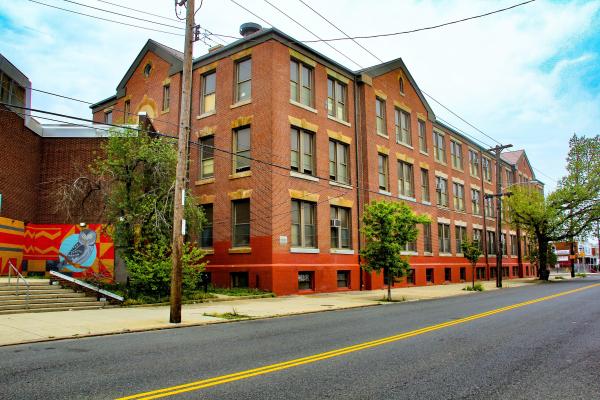Advanced Search
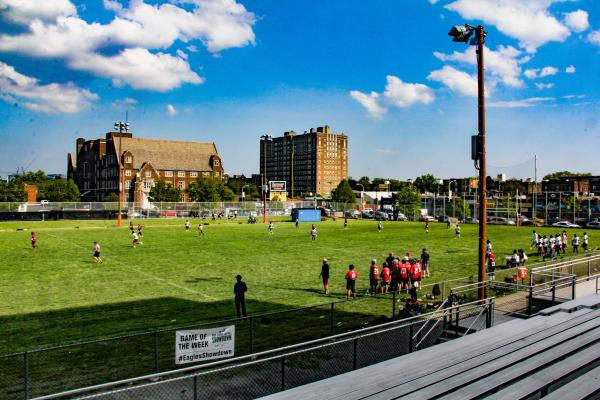
Pollock Field today at 48th & Spruce St. The view is east toward the Emanuel Church on 47th Street.
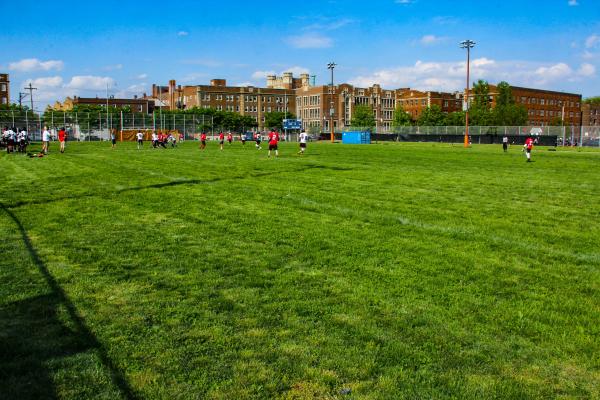
In the 1930s, baseball entrepreneur Harry Passon, a Russian-born immigrant, profited by collecting fees from the Black professional and semi-professional baseball teams he scheduled to play on this field, which he rented, upgraded, and branded with his name. In the decades after the Second World War, the field was used by West Philadelphia High School. Located at 48th and Spruce streets, it is now called Pollock Field. The venue provides multiple opportunities for youth athletic participation. In this photo, the Tudor-Gothic towers of the building that was once home to West Philadelphia High School rise in the background along 48th Street.
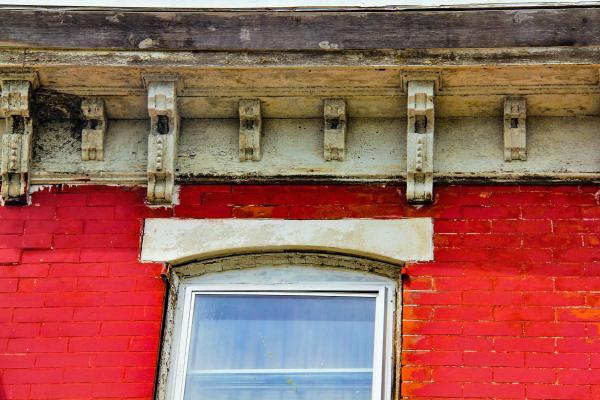
As shown in this contemporary photo, the house Lydia Boothroyd Goodyear owned at 6147 Walton Ave. retains its original wooden roof cornice and ornamental supports.
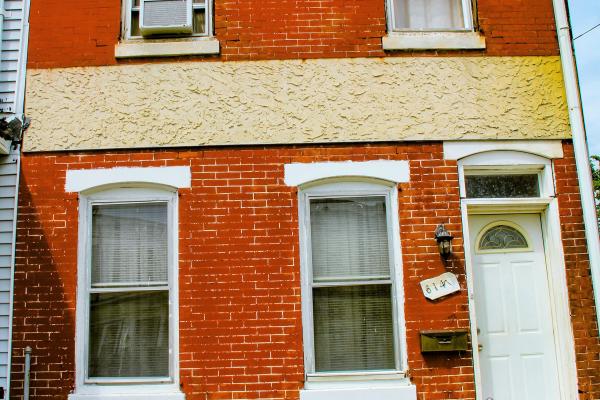
The 1940 Census shows Lydia Boothroyd Goodyear, Napolean Goodyear’s widow, living in this house at 6147 Walton Ave. with two of her children. The house was built ca. 1869. In 1905, it was purchased by Napolean and Lydia. Napolean died in 1917. Lydia died in 1941 at age 84. In 1946, the house was put up for sale by the City for failure to pay taxes. Lydia’s children, however, were apparently able to save the house. Her daughter Myrtle Goodyear died there in 1969 at about age 72. She had no children and the house was escheat by the Commonwealth in 1883. It was sold in 1984.
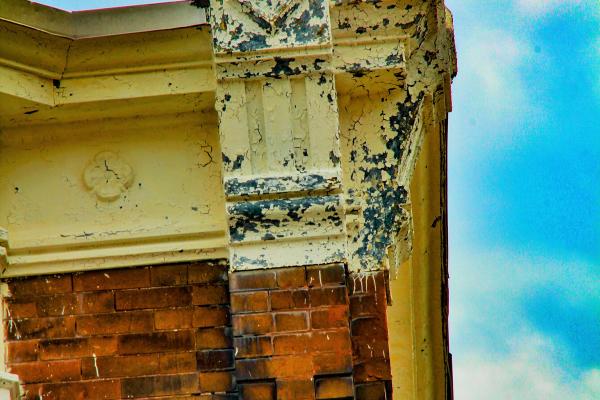
The southwest-corner house at 62nd St. and Walton Ave., showing the original wooden cornice of the roof and a decorative (finial-like) extension that rises above the roof-line.
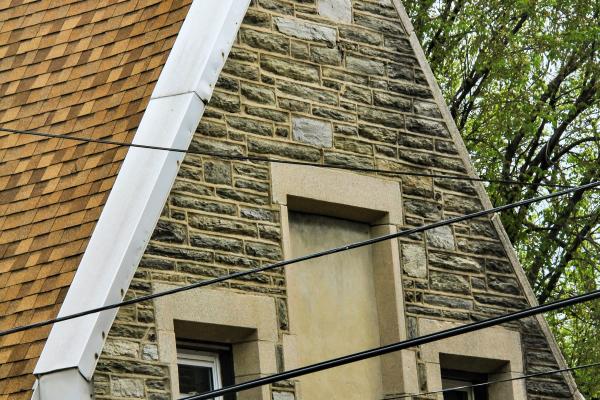
This photo of 6134 Cedar Ave. shows the original stone façade of the structure’s east side. The distinctive architectural element here is the A-frame roof line that forms an arrow with the house’s foundation; this element marks the house as turn of the twentieth century. It begs comparison with the red brick arrow of the building’s east side.
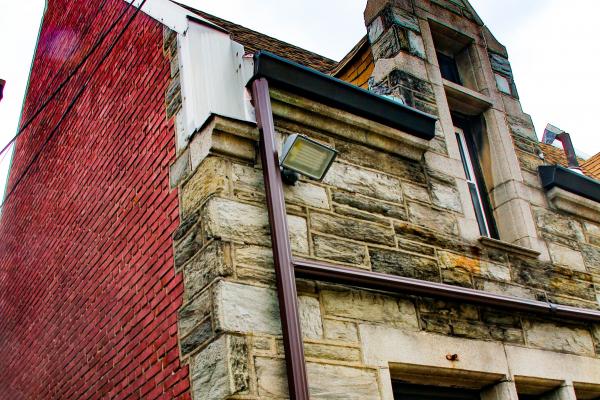
This photo of 6134 Cedar Ave. shows the original red brick of the structure’s east side. The distinctive architectural element here is the A-frame roof line that forms an arrow with the house’s foundation; this element marks the house as turn of the twentieth century.
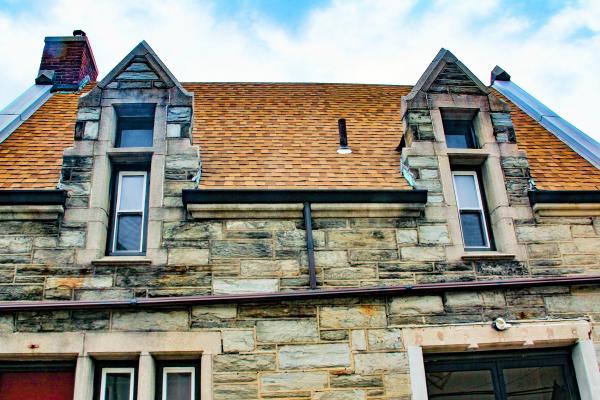
This photo of 6134 Cedar Ave. shows the elegant stone façade of a house likely built at the turn of the last century. Today the building is owned by Church of Christian Compassion, whose headquarters building is 6121 Cedar Ave.
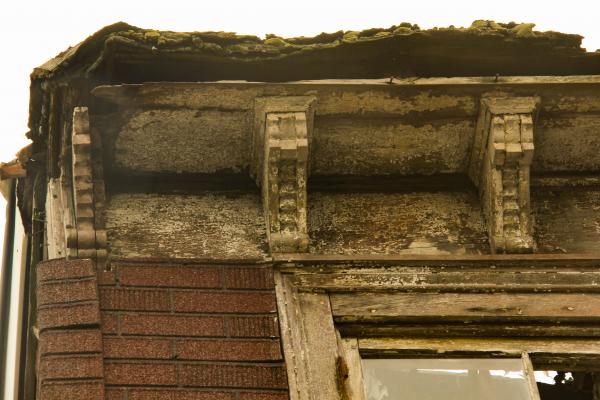
This close-up of the roofline of 6120 Cedar Ave., an abandoned house, shows original architectural elements—wooden roof cornice and ornamental supports—that mark it as structure built at the turn of the twentieth century.
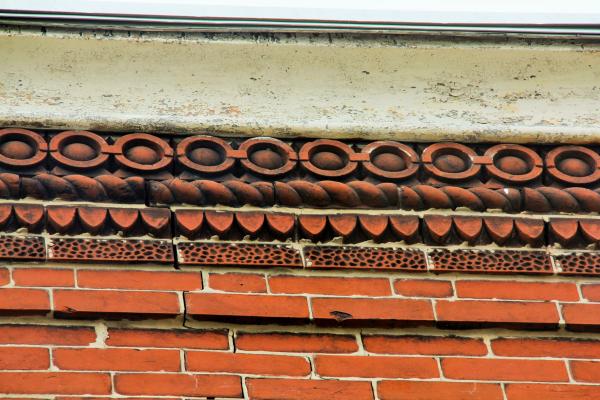
This close-up of the top of 6114 Cedar Ave. shows the roof (likely the original wood) cornice and ornamental redbrick below it; turn-of-the-last-century West End design elements.
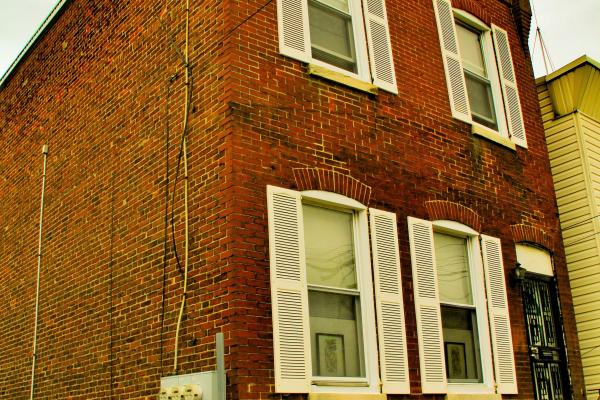
This renovated stand-alone house at 6114 Cedar Ave. retains some distinctive elements of its original West End architecture: redbrick façade, roof cornice, and ornamental brick below the cornice.
In 1900, this house was the home of Charles and Rosa (Breisch) Alber (ages 30 and 32). They immigrated from Germany about 1890 and married in Philadelphia in 1892. They had six children although two died at a very early age. Charles was a butcher who had been in business with his brother at 826 Race St. It appears that the business ran into trouble as Charles advertised for a job in 1904. At the time, he was suffering from cirrhosis of the liver and died in 1906. To cover the rent and feed her family, Rosa started taking in washing. Seventeen-year-old Charles, Jr. started working as a cloth cutter in a factory and his sister Helen, 14, worked as a sewer in the same factory. During World War I, Charles served overseas in Co. D 1st Telegraph Battalion. After the war, he worked as a wireman for the telephone company. In 1920, their younger daughter, Bertha, was making records for a “talking machine” company and son Erwin was working as an electrician’s helper. In 1930, Rosa was living at 2652 70th Street in Southwest Philadelphia. Erwin was working as a machinist for the electric company. Bertha had apparently married but was not living with her husband.
